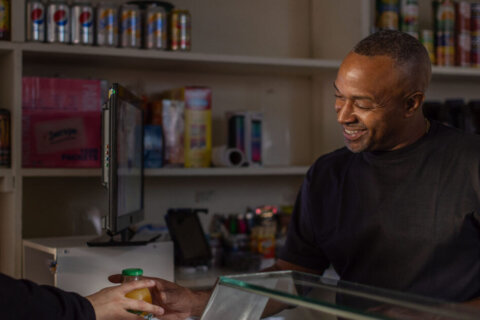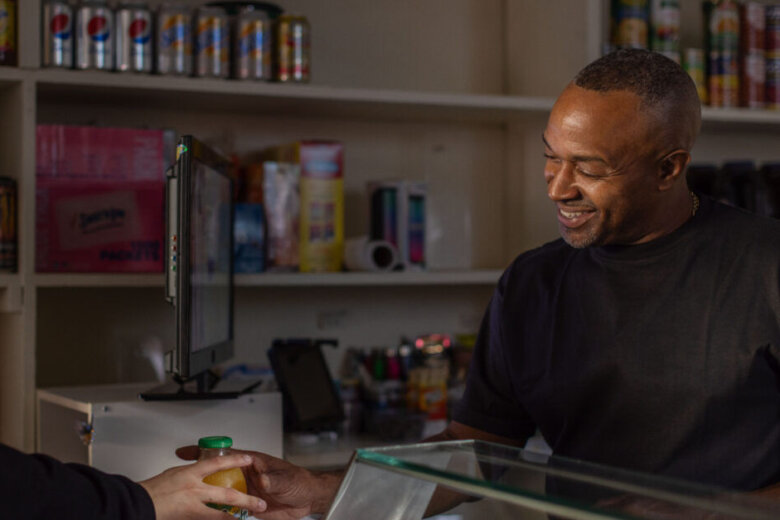
A Maryland grocer filed a lawsuit against the U.S. Department of Agriculture over a policy that he claimed blocked him from accepting Supplemental Nutrition Assistance Program — commonly known as SNAP — benefits from customers.
Altimont Mark Wilks, who owns Carmen’s Corner Store with locations in Frederick and Hagerstown, said he started the two stores after spending 14 years in prison for felony drug and weapons convictions.
“My entrepreneurial spirit was misguided,” Wilks said of his past.
During his time in prison, he said he transformed himself and wanted to use his talents to make a career out of running a grocery store that supports an underserved community.
“When we opened up our first store in Hagerstown, Maryland, our real focus was to put an end to the food desert that existed there,” Wilks said.
He believed one important part of serving his community with a store was offering his customers the ability to buy their groceries using SNAP benefits. However, after years of trying, the USDA permanently denied his requests at both grocery store locations.
He said he was prevented from accepting benefits because business integrity rules ban business owners convicted of crimes involving drugs, weapons and other criminal offenses, from joining the program.
“I never thought that my past transgressions would be used against me,” Wilks said.
After several years of applying and exhausting appeals of repeated denials, Wilks decided to sue over the policies.
When asked about the lawsuit, the USDA said in an email that it “does not comment on ongoing litigation.”
Attorney Jared McClain with the Institute for Justice took on the case, claiming the interpretation of the agency’s rules regarding which applicants can be denied is at issue.
The USDA’s list of what can lead to a business owner being denied states, “violation of laws relating to alcohol, tobacco, firearms, controlled substances, and/or gaming licenses.”
McClain said the word “licenses” is key because if a person were to violate the rules of a firearms license, that could show that a business owner cannot be trusted. He said the line does not intend to prevent all convicted of committing crimes in their past from accepting SNAP benefits as business owners.
“If you’ve been caught with possession of marijuana, or you had an open container violation in college, you are permanently excluded from ever accepting SNAP,” McClain said.
According to court records, in 2022, Wilks was cited for operating as what is called an “other tobacco products” retailer. McClain said that charge was due to Wilks unknowingly selling three cigars, which did not fall under the tobacco selling licenses his store did have.
McClain said the situation happened after he was denied, so it does not impact the case. If their challenge is successful, he does not believe it will stop Wilks from getting a SNAP license.
“If the agency took the position that a $35 fine should result in a lifetime ban, we would also fight that,” McClain said.
Wilks is also working with lawmakers on this, including Maryland Rep. David Trone, who in March announced a bill called the “SNAP Second Chance Act of 2023,” which Trone’s office said would limit the authority of the USDA to deny small business owners with previous criminal convictions from joining the SNAP program.
“In my business, I hired over 500 returning citizens because I know giving folks a real second chance leads to economic growth and a better community. It’s wrong to keep folks from rebuilding their lives — these bills fix that,” Trone said in a release.
For Wilks, he said fighting this case is about more than just getting the right to accept SNAP funds in his stores. It’s also about making sure others who re-enter society don’t avoid becoming entrepreneurs because of similar policies.
“We’re doing this because we truly believe that these obstacles that exist in many government agencies need to be eradicated,” Wilks said.









